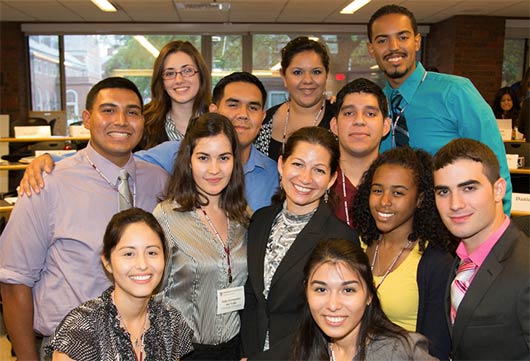
Latino obesity has become a legacy. Growing up in the South Bronx, my family and I lived in a food desert. We did not have access to fresh, quality fruits and vegetables. Our vegetables consisted of canned corn and beets. And, many common fruits, like plums, peaches, and blueberries, were considered exotic in our area. It wasn’t until I was an adult, that I had my first taste of these common fruits.
Lacking access to healthy, affordable foods, many Latino families like my own made do with what was available, to our detriment. The eating habits established in these formative years were the precursor to obesity related diseases. Handed down from generation to generation as if they were treasured jewels, diabetes, hypertension, and heart disease are readily, if not joyously, anticipated. It was a rite of passage.
This generational cycle must change.
According to a special report by the Trust for America’s Health and the Robert Wood Johnson Foundation, Latinos are consistently more likely to be overweight or obese than Whites. This is true for boys and girls, men and women. But this disparity is not just a Latino issue. According to the U.S. Census Bureau, nearly one in three children will be Latino by 2030. The dramatic Latino obesity rate must be tackled if we wish to contain skyrocketing U.S. healthcare costs.
How can we, as a community, change the Latino obesity rates?
To get an answer to this question I went directly to MomsRising’s Latino community. Across the board, I received the same response: there is no pat answer to stemming Latino obesity rates. It will take concentrated effort from families, schools, communities, and organizations.
Improving access to healthy affordable food, as well as safe areas to live, work and play, is critical to helping Latino youth and families lead healthy lives. Junk food marketing to Latino children must also be restricted. Currently, Latino children are exposed to more junk food marketing than their White peers. It is unfair. Children under the age of 12 do not have the cognitive ability to understand marketing practices, while older children can develop food addictions.
We must be the change that will reverse the Latino obesity epidemic.
Our treasures are contained in our cultura, and that includes our foods, created in a healthier way. This is the legacy that we must pass down to our children, not obesity related diseases. And, it begins with you and me.












Leave a Reply
Want to join the discussion?Feel free to contribute!